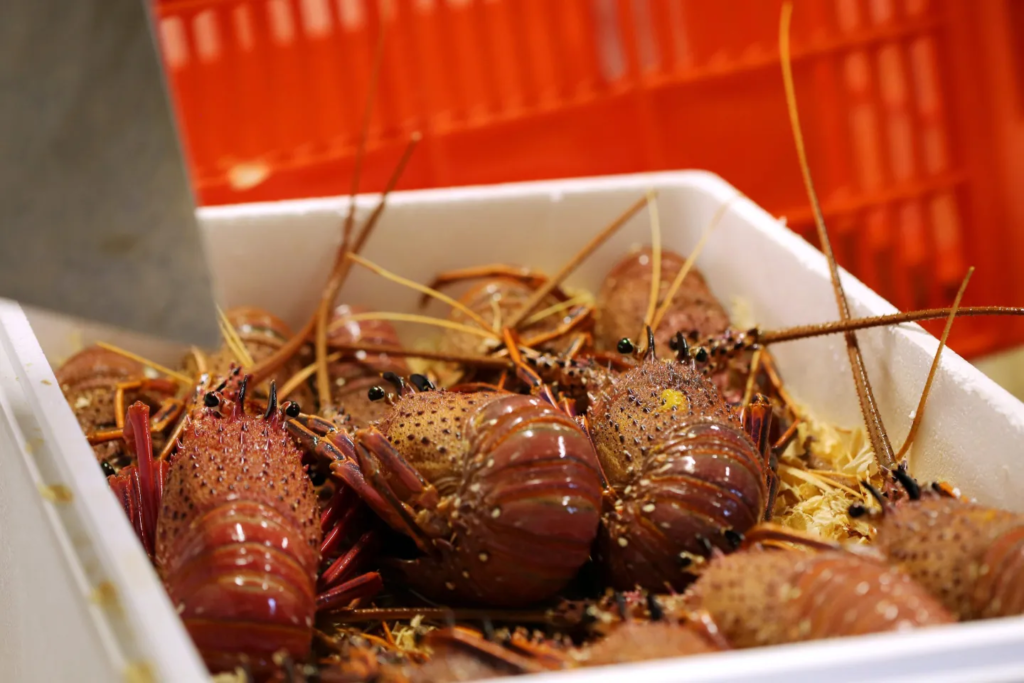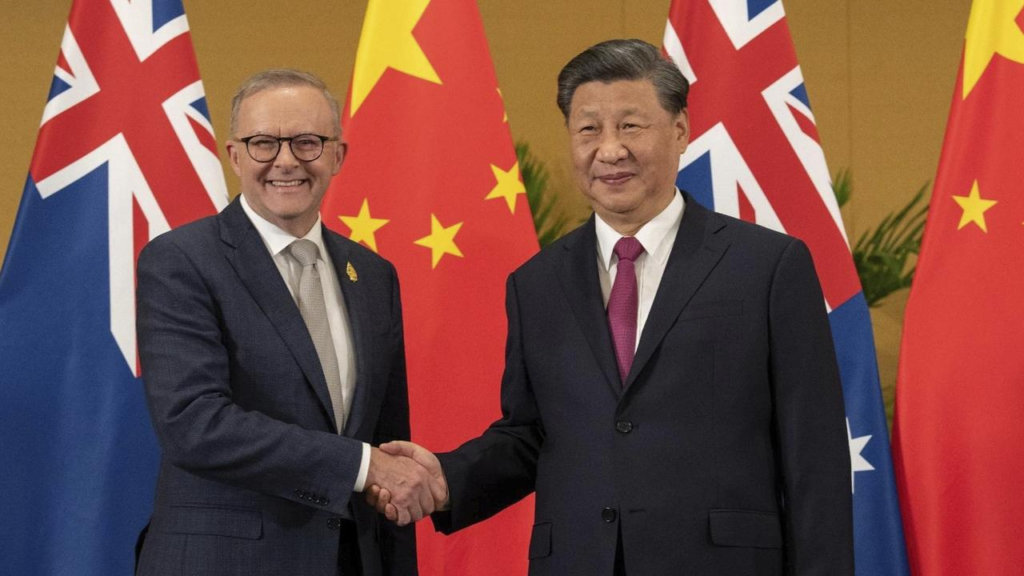China is set to resume imports of Australian lobsters by the end of 2024, following a four-year trade standoff that severely impacted Australia’s export market. The ban, which was initially imposed in response to geopolitical tensions between the China and Australia, is now being lifted as diplomatic relations improve.
The resumption of lobster trade comes as a relief to Australia’s fishing industry, which has faced significant economic challenges due to the restrictions.
The Origins of the Ban and Tensions Between China and Australia
The trade dispute between China and Australia can be traced back to rising tensions that began in the mid-2010s, escalating over several years. By late 2020, the relationship between the two nations had reached a critical point when Australia called for an international inquiry into the origins of COVID-19.
Read : Regent International: World’s Largest Residential Building That Houses 20,000 People in China
China, which saw the move as a political provocation, responded by imposing unofficial bans and tariffs on several Australian exports, including coal, wine, barley, and rock lobster.
Read : The List of Top 20 Countries in Debt to China
Australian lobsters, highly prized in China’s luxury food market, were among the most affected products. The export ban led to devastating losses for Australian lobster fishers, who had previously relied on China as their largest market.
Before the ban, the majority of Australian lobsters were shipped live to China, where they were considered a premium delicacy, especially in the lead-up to major holidays like Chinese New Year.
The loss of access to this lucrative market forced Australian exporters to find alternative buyers, although none could match the volume and demand that China once provided.
The broader impact of these trade restrictions was significant. Beyond lobsters, Australian wine and coal exports were hit particularly hard, as were other key sectors.

In total, the trade standoff cost Australia tens of billions of dollars in lost exports. The economic strain from these restrictions underscored the interdependency between the two countries, despite their diplomatic disagreements.
Diplomatic Efforts and the Path to Trade Normalization
In recent years, both China and Australia have made efforts to de-escalate their trade dispute, leading to a gradual removal of most trade restrictions. Prime Minister Anthony Albanese, who has prioritized stabilizing Australia’s relationship with China, played a key role in pushing for the normalization of trade.
His efforts were bolstered by growing recognition within both countries of the importance of maintaining strong economic ties, despite political differences.
The turning point came in 2023 when several restrictions, including tariffs on coal and wine, were lifted. The lobster ban, however, remained in place, representing one of the last unresolved issues between the two trading partners.
This changed during a meeting between Albanese and Chinese Premier Li Qiang on the sidelines of the Association of Southeast Asian Nations (ASEAN) meeting in Laos in 2024.
Albanese announced that China had agreed to fully resume lobster imports by the end of the year, just in time for Chinese New Year, one of the peak periods for lobster consumption in the country.
This development is seen as a major win for Australia’s lobster industry, particularly for fishers in regions like South Australia, Tasmania, and Western Australia, where lobster fishing is a significant economic driver.
Many in the industry are optimistic that the resumption of trade will provide a much-needed boost to their livelihoods after years of financial strain. It also signals that Australia and China are willing to put aside their differences and rebuild their trade relationship through dialogue and cooperation.
Economic and Political Implications of the Ban Lift
The decision to lift the lobster ban is not just about restoring trade but also carries broader economic and political implications for both China and Australia. For China, resuming lobster imports from Australia is a signal of its willingness to engage in pragmatic diplomacy and move past the tensions that have marred relations over the past few years.

As the world’s second-largest economy, China’s trade decisions can have far-reaching consequences, and its willingness to restore imports sends a message of goodwill.
For Australia, the lifting of the ban represents a critical step toward repairing its economic ties with China, which remains its largest trading partner.
Australian officials have repeatedly stressed the importance of maintaining a balanced relationship with China, one that allows for both constructive engagement and the assertion of Australia’s national interests.
The removal of the lobster ban is evidence that diplomacy, even in the face of geopolitical tensions, can yield tangible economic benefits.
The return of Australian lobster to the Chinese market is also expected to have a significant positive impact on local economies in Australia’s coastal regions.
Lobster fishing has long been an essential industry in states like Western Australia and South Australia, where it supports thousands of jobs and contributes to regional development.
The re-opening of the Chinese market is seen as an opportunity for these regions to rebuild and strengthen their economies after years of uncertainty.
Beyond the economic benefits, the resumption of trade could also have a stabilizing effect on the broader Australia-China relationship. By resolving one of the last remaining trade disputes between the two countries, both nations can focus on deepening their economic cooperation and exploring new areas for collaboration.
In this way, the end of the lobster ban is a potential turning point for Australia and China as they seek to move beyond their recent period of tension and mistrust.

China’s decision to lift its four-year ban on Australian lobster imports marks the end of a significant chapter in the trade dispute between the two countries. The ban, which began as part of a broader set of retaliatory measures in response to Australia’s political actions, has had a lasting impact on Australia’s export industries.
The return of lobster exports to China will provide a vital boost to Australia’s fishing industry and signals the beginning of a new phase in Australia-China relations.
This development comes at a time when both nations are looking to rebuild their economic partnership and find common ground on issues of mutual interest. With trade restrictions being lifted and diplomacy taking center stage, the future of Australia-China relations appears to be heading toward a more cooperative and constructive era.
The resumption of lobster trade is not just an economic victory for Australia but a symbol of the potential for diplomacy to resolve complex international disputes.

